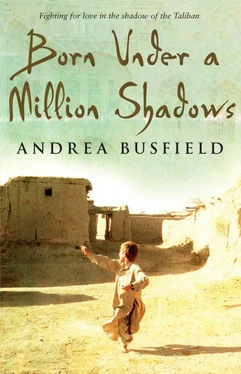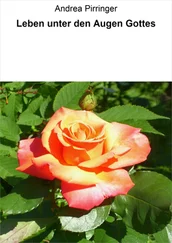Apparently, his wife’s willingness to help her husband lasted only as long as Mina was a girl. When she began to show signs of becoming a woman, Hanifa demanded she go. Abdur Rahim protested that he thought of Mina as a daughter, but his wife was convinced that over time he would think that way less and less. As her shape changed and she grew into her beauty, there was no blood link to stop him from taking her as a second wife.
Reluctantly, Abdur Rahim agreed to Hanifa’s demands. However, he told Mina that he had found her a good man to live with, and even though he would be her husband rather than her guardian, he would not beat her because he was a true Muslim.
Although Mina appreciated the old man’s thoughtfulness, and the fact that he had done no harm to her over the years, she said she still could not find it in herself to forget or forgive the wrong he had done in the first place, so after he told her she was going she simply collected her small bundle of clothes and without a word or a gesture, apart from a nod to his wife, Hanifa, she walked out the door and never looked back.
Outside, her new husband was already waiting to pick her up. He was younger than Abdur Rahim by a good ten years, and one of his arms was smaller than the other as a result of a disease he had caught as a child. Without a word he collected Mina’s things with his one good arm and put them in his Toyota Corolla. He then drove her eastward until they arrived in Kunar.
Although the journey was long, the only thing Mina learned on the way was that her husband’s name was Hazrat Hussein and the Taliban were no longer in power in Af ghani stan, and hadn’t been for the past two years. “Although I was pleased to hear the Taliban had been defeated, I was also angry that, as far as I could see, nothing had changed. The Talib who had bought me was still in his big house and I was still the prisoner they had first made of me.”
When Mina arrived in Kunar, she was taken to a small house, and, as she’d half expected, there was already another woman in it. In fact there were two more. The older woman was Hazrat’s mother, and she was as sour as the milk from a poisoned goat. The other woman was Hazrat’s wife. Her name was Rana. She was tiny and very ill, and she had been unable to give her husband any children. After taking one look at the pitiful creature she would have to call sister, Mina knew what was expected of her.
She didn’t disappoint. A year later she handed Hazrat a son. They named him Daud. “Hazrat was delighted, and really he was, and is, a very good father to our son. And thanks to our son, my life is filled with some measure of joy now.” More amazingly, Hazrat’s mother melted like butter whenever she held her grandson, which softened her heavy-handed ways around the house. Even Rana gained strength and happiness with the arrival of Daud.
Even though life had forced the two of them together, Rana and Mina quickly became one as they united against their shared husband’s mother, and because my sister saw the pain in Rana’s eyes that came from her body, she did everything she possibly could to make life easier for her new sister.
It was because of my sister’s kindness that when Rana was listening to the radio one day, as Mina was busy cooking in the kitchen, and she heard Georgie’s message, she immediately told her about it. “I couldn’t believe it could be true. I was certain you had all been killed because I remember seeing the houses burning in the night as we drove away from Paghman, and I remember clearly the hate that had been painted on the faces of those men who took us. Then all of a sudden I get this message that you didn’t die after all, that you were still looking for me, even after all these years.”
For days after hearing Georgie’s message Mina bounced from joy to grief as she thought of us and then the miles between us that could have been a million as far as she was concerned, because she didn’t even dare to think that her husband would agree to her coming to Kabul.
But my sister hadn’t reckoned on the might of Rana. Day after day Hazrat’s first wife begged her husband to be merciful, and she cried real tears as she told him how happy this one act of kindness would make her—“she who had known nothing but the love of a good man and the anguish of an empty womb and failing health,” Mina whispered. “She was amazing. I owe her so much.”
Sadly, Rana died a month back from the illness that had been eating her insides. Wanting to honor the last wish of his dead wife, because he really was a good man just like Abdur Rahim said, Hazrat Hussein contacted the number Rana had written on a piece of paper and spoke to Georgie.
 28
28 
AFTER MINA CAME back from Kunar, and back into our lives, she stayed the night with my mother, sleeping in her room.
I wanted to stay with them because I didn’t want to leave my sister after just finding her again. It was all so strange and confusing. Mina was different. I recognized her, but at the same time I didn’t. In my dreams, when I had prayed so hard for her to come back, I always imagined her as a little girl. But she wasn’t a little girl anymore; she was a woman.
“You are so grown up!” Mina told me, pulling me to her because I was sitting by her side, not sure what to do. “I can hardly believe it! My little brother now a little man, all quiet and serious.”
“He’s not usually so quiet,” my mother said with a smile.
“Well,” Mina said, kissing me on the cheek, “it’s a lot to take in. We must get to know each other again.”
As Mina spoke I let myself fall deeper into her body. Though she was right and our eyes and our heads needed time to learn about each other, my heart already knew all there was to know, and it loved her.
When my eyes struggled to stay open, my mother told me to go to my room so she could speak to Mina alone. I wanted to stay, but I didn’t say so because I saw it was important to my mother, and as I waited for sleep to take me I listened to them talking and crying together. I guessed my sister was slowly getting the story of our life—and slowly getting used to the idea that she had lost our older brother, Bilal.
When the sadness of the night was over and the sun woke up to shine its happiness back on their talk, my mother decided that my sister’s return was a blessing from God that she should marry Shir Ahmad. I was pretty relieved when she told me because it stopped the guard from marrying someone else and it also allowed me to tick another secret off my list—well, almost. Apparently we still couldn’t tell any of our friends because we had to travel to Khair Khana to my aunt’s house first.
For two women who not so long ago couldn’t stand the sight of each other, they were sure as hell seeing a lot of each other now. But of course there was a reason for it. After all, this is Afghanistan, and rules have to be followed.
There in my aunt’s house, in front of the mullah who had said the prayers for Spandi, my mother and Shir Ahmad performed the marriage ceremony, nekah , accepting each other three times before Allah. As well as the holy man making sure they did everything right, my aunt and her husband were allowed to watch, as well as two of Shir Ahmad’s brothers, and my sister Mina and her husband.
Hazrat Hussein had turned up at our house earlier that morning, expecting to take his wife home but finding a wedding invitation in his hand instead. To my surprise, he was a lot bigger than I had imagined, and his face was soft and kind. And although his arm looked strange, as if God had tied a child’s one onto his body rather than a man’s, I was relieved to see it was the left one, which meant there were no embarrassing problems when it came to shaking hands.
Читать дальше

 28
28 











